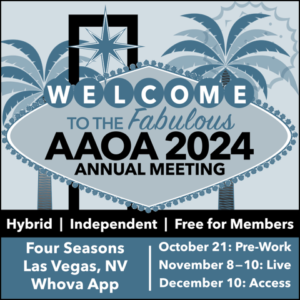By Alfred Sassler, DO, AAOA PPR Commitee A major pet food producer is marketing a “groundbreaking” cat food to reduce cat allergens. It was released after 10 years of development and testing to produce a nutritional solution to reduce house…
What over-the-counter allergy treatment should I try?
You have allergy symptoms, and want to find something to treat your symptoms without having to go to a doctor. The allergy aisle in the pharmacy or big box store is overwhelming. What do all these drugs do?
Let’s break it down.
Antihistamines
These medications block the histamine chemical that is released in the body as a result of allergic reaction. Histamine is what causes itching, runny nose, watery eyes and sneezing. These include the older Benadryl, which is a great medication, however, can be quite sedating. The newer medications, such as Claritin, Zyrtec and Allegra, are also effective with little to no sedation for most people.
Nasal steroid sprays
These have now been released over-the-counter in the forms of Flonase, Flonase sensimist, Nasacort, with others to come soon. They are steroids, which is a potent anti-inflammatory. These medications are very effective at reducing congestion, runny nose and often postnasal drip. They can even help itchy watery eyes. Their worst side effect is drying out the nose, or inciting nosebleeds, which can be reduced by also using nasal saline. If you have early cataracts, or a strong family history of cataracts, you may want to ask your eye doctor about using these long term, as they may increase your risk of developing or worsening cataracts. Also, routine, typically yearly, examination of the inside of the nose is recommended while using these sprays to ensure there are not complications developing.
Decongestants
Pseudoephedrine or phenylephrine are the common OTC decongestant pills. These drugs primary target is congestion, which is reduced by shrinking the swollen tissue in the nose. These medications can cause increases in blood pressure, especially in someone with high blood pressure prior to their use. They also have the potential for tolerance, meaning, if you use them all the time, they become less effective. Phenylephrine and oxymetazoline are topical decongestant nasal sprays which are very effective at reducing congestion in the nose, however, they can cause significant rebound congestion – or much worse stuffy nose – if they are used consistently for more than 3 days in a row. These sprays are best reserved for severe congestion and only for 2-3 days in a row or less.
Guaifenesin or Mucinex
This pill is a mucus thinning medication. It does not treat inflammation or histamine associated with allergies, nor does it treat congestion unless it has a -D at the end. It is only for thick, sticky mucus that is difficult to cough up or blow out.
A good nonmedicated option is nasal saline rinses, via either a squirt bottle or neti pot. These can be very good at eliminating the allergens from the inside of the of your air filter (nose) that have become trapped there, and reduce your need for medication by stopping the chain reaction of allergy before it gets going. They also add moisture to a dry nose and thin secretions, combating some of the side effects of commonly used medications for allergies.
As always, if you are unsure, please ask your doctor. Also, if you have tried one or more of the above, and you continue to have allergy symptoms, perhaps it’s time to visit your local allergist and discuss other options.


 *The 2024 AAOA Annual Meeting is FREE to all AAOA members in good standing
*The 2024 AAOA Annual Meeting is FREE to all AAOA members in good standing

